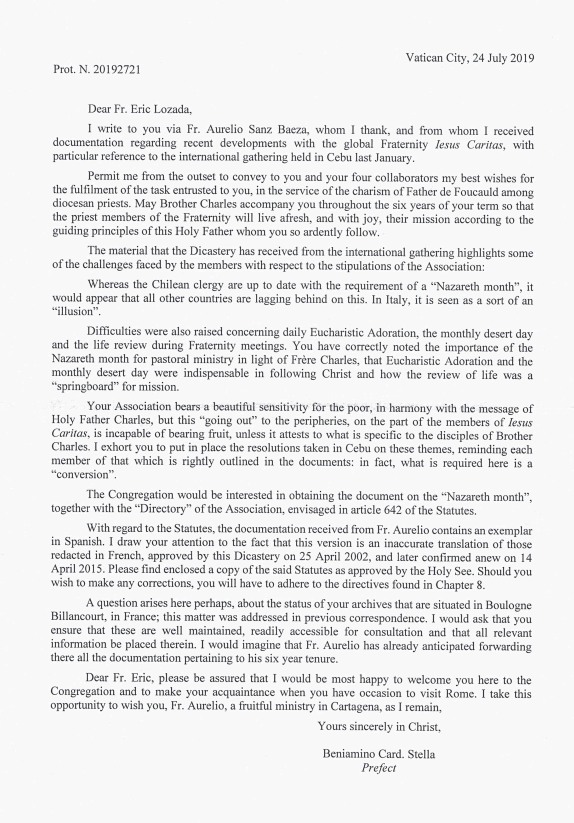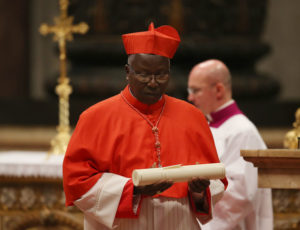At the International Assembly in January 2019 in Cebu, Fr. Eric Lozada was elected as the new International Responsible. By then, the National Team decided to call for a special gathering of the local responsibles and those brothers who have made the Month of Nazareth in order to pray, share and discern together for our new National Responsible as well as to review on the realities and mission of our local fraternities.
We are the twelve (12) brothers from four fraternities who came, as others were caught up with earlier set pastoral commitments. At St. John Vianney Clergy House within the seminary compound of Dumaguete City we found a home from August 26 – 30, 2019.
The noise at the nearby airport spoke of the myriads of realities that beset and attempt to deviate us from our focus in our life and mission as priests. Listening to the experiences and questions of the brothers and reflecting on the Letter from Cebu we felt the invitation to silence and be in touch with the Source of our vocation and mission, Jesus, the Risen Lord. An hour a day before the Blessed Sacrament , at the overnight vigil and during the Day in the Desert we have to embrace the many painful realities within our broken selves, in our hibernating local fraternities, in our wounded prebyterium and in our scared and scarrred society.
Hope is marked in our hearts! The cross over the heart: Jesus Caritas.
Blessed Brother Charles carried this fire as a brother to everyone He dared to walk along with those in the peripheries. Pope Francis both in his persona and pronouncements exudes this joy on the mercy and compassion of God to reconcile and bring healing to the young people, the families, those who lost homelands by war and violence and to our beloved paining earth, our common home.
We are called to retrace our journey back to Jerusalem, the place of Jesus passion and resurrection. And even to go further back to Galilee, the place of Jesus meeting and calling his disciples.
As brothers in the fraternity, the only way to move ahead is to review our attraction and initiation to Jesus Caritas. We have to outgrow from the travels and meetings that may have given the impressions of us being a secret, elite and pious group. At the Month of Nazareth we have attended and where we have made our final engagement to the fraternity, at our National and Continetal gatherings and at our local fraternity sharings are the many moments where we broke the bread of ourselves and were nourished.
Perhaps the open door of fraternal spirit that initially attracted and inspired us in our priestly ministry may have become now a narrow door that tests our endurance. Indeed the good soil needs plowing and weeding so as to welcome the seeds sown to put on deeper roots. Our local fraternity does not depend only on the charismatic personality of the responsible. Its strength also lies in each responsible members. This we have to strive and encourage one another to revive our common fidelity.
Towards the end of our gathering we have elected an interim National Responsible who will lead us towards our National Assembly in 2020. Fr. Vel Villasis from Iloilo accepted the call. He also chose his team in the persons of Fr. Ervy Lajara (Visayas), Fr. Anthony Jun Piguerra (Mindanao) and Fr. Larry Famarin (Luzon).
As we setforth back to our mission places, we are so grateful to the kind services of the religious sisters and the warm welcome and company of Dumaguete brothers. God bless us all!




